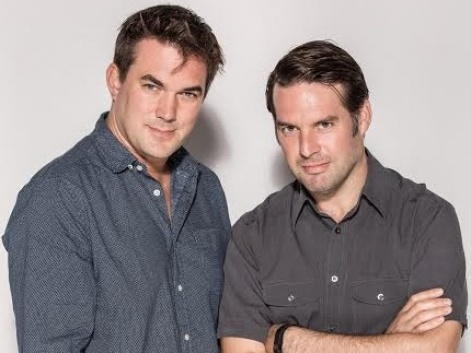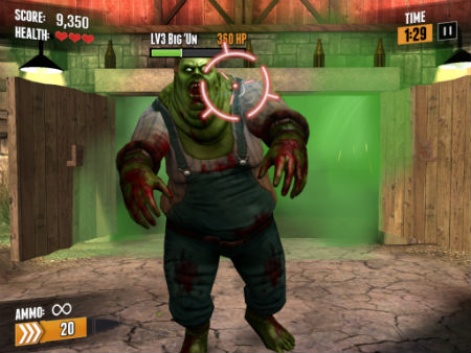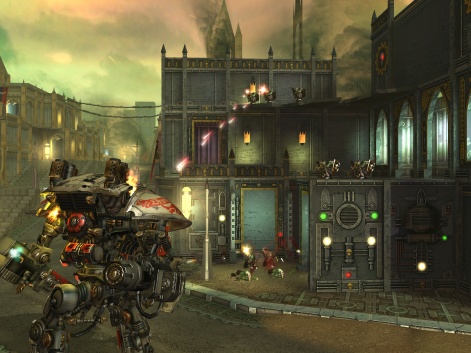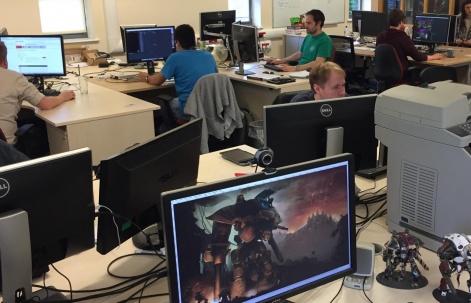A burgeoning studio based in the fertile game development region of Leamington Spa, UK-outfit Pixel Toys has come a long way in the past couple of years.
Co-founded in 2012 by Andy Wafer and Alex Zoro - a pair whose accumulated experience includes stints at Rare, Activision, and Codemasters - the Pixel Toys' story started with a leap of faith from console to mobile.
We visited the office to chat with CEO Andy Wafer about the company's position in the mobile industry today, how it got there, and the key aims that he and his team will be pursuing in the next few years.
Origins in Freestyle
“Myself and my business partner Alex both worked at Activision's Freestyle Games (DJ Hero, Guitar Hero), which is also based in Leamington,” says Wafer, explaining the origin of the Pixel Toys partnership.
“I worked at Codemasters before that for many years, doing different things - mainly in product development, brand marketing,” he goes on.
Zoro provides expertise in technical programming and production.

“We both decided that we wanted to do something in mobile, as we could see that it was becoming - this was 4 years ago - but we were getting the first hints of what would be achievable in the future,” says Wafer.
Gunfinger helped us fund this next project and allowed us to upscale.Andy Wafer
“I guess it's a familiar story. A lot of people have come from the console industry, seen the opportunity, thought 'we can publish our own games, reach a bigger audience.'”
Console development is no picnic, after all: “It's frustrating to work on stuff for years for it to only go out to 4 or 500,000 people when the potential is tens of millions of people,” reflects Wafer.
Big plans, small scale
“So we set up the company, the two of us, in an office half the size of this one” - for context, we are sitting in a rather modest meeting room adjacent to the main development area - “and we started working on the concept for what would become Gunfinger.”
Gunfinger is the game for which Pixel Toys is currently best known.
A touchscreen shooter which rejects the widely-used control schemes for the genre and approaches the platform on its own terms, it remains a great distillation of the Pixel Toys philosophy.

“We didn't just want to say let's make a virtual twin-stick shooting experience. To me, that just seems completely wrong, the whole concept of doing that,” says Wafer.
“What we wanted to do with the way we make games is to give that rich, exciting 3D experience that people expect from console games, but make it appropriate for the interface and for the platform.”
In order to help fund the ambitious Gunfinger, the studio took on another project: “we also did a little, small 3DS title that was just something we could do to get a team going,” he recalls.
We'll probably be 15 or 16 people by the end of 2015.Andy Wafer
“It was based on an iOS game called Little Acorns. We chatted to the guy that did that and we talked about how we could bring that to 3DS whilst we were also working on Gunfinger.”
“And then we brought in a couple of people: we brought in a good artist and another programmer, and we started working on a prototype.”
New world
However, old habits die hard for developers with a triple-A background, and it's with mixed feelings that Wafer remembers Pixel Toys' visit to show off Gunfinger in LA.
“Eventually, we had something we thought was really cool, and we tried taking it to E3,” he says.
“But it's a mobile game, and not everyone's really that interested in mobile games, so we got a bit exhausted running around.”
“We were a bit like, 'what if it's not that cool, what if no-one thinks it's that great and we've done the wrong thing?'”

Despite this anxiety, however, Wafer now considers the game a success - and certainly a pivotal game in terms of Pixel Toys' development and the direction in which it wants to go.
“Gunfinger did quite well for us," he says.
Depending on how this project goes, we can maybe move to two projects.Andy Wafer
"We got quite a lot of downloads (over 2.5 million), support from platform holders which was really cool, and the game monetised okay.
"It helped us fund this next project and allowed us to upscale."
So following work on the game's updates, the burning question was 'What's next for Pixel Toys?', which is where Games Workshop entered the picture.
From table to tablet
The developer has just announced Warhammer 40,000: Freeblade, which is shaping up nicely.
Handled right, and with a well-known IP behind it, it could mean big things for Pixel Toys.
“There's a few Games Workshop games around, but there's such a breadth of content. So we talked to Games Workshop, and we showed them what we wanted to do,” says Wafer.
“[It is] something a bit different... we wanted to do a very action-focused, high-fidelity experience, and we decided that there was an opportunity to do it with the Imperial Knights brand, which haven't been used in a mobile action game before."
So, how does a small studio like Pixel Toys go about approaching Games Workshop with its ideas? And how flexible is Games Workshop with how its IP is used?
"We met Games Workshop initially at the Develop conference," Wafer reveals. "The licensing guys were very approachable.
"Ultimately, you have to make your product appropriate and correct for the intellectual property - if you don't, it won't be approved, and I think you have to respect that... and that's why we take a lot of painstaking detail to make sure everything's 100 percent perfect.
"And, if it isn't, we take that on-board. Because, ultimately, we don't want to produce something where legions of Warhammer fans go 'That's incorrect, that's wrong'. So if they say something's wrong, it's wrong."
Getting cramped
Warhammer 40,000: Freeblade marks Pixel Toys' most ambitious title to date. Any plans for studio expansion?
“We've literally reached capacity in that room now,” says Wafer, gesturing next door. “So we need to find more office space.”
However, Wafer says that Leamington Spa - while an excellent environment for encouraging start-ups - is short on mid-sized office space.
“There's loads of small incubation spaces that are good for four-man teams, and then there are offices that are good for 100+, but not a lot for 30-40 people that are free at the moment.”
For Pixel Toys to have outgrown its current home seems like a good sign, especially given its humble beginnings.

“We've grown the team this year from about six or seven people at the end of Gunfinger to 10 or 11 employees, plus contractors and some trainees as well," says Wafer.
Wafer talks highly of the trainees currently on board at Pixel Toys, and says that harnessing the energy of young talents is a key tenet of the firm's long-term approach - a good balance of ages and experience levels.
“So [when trainees go full-time] we'll probably be 15 or 16 people by the end of this year,” he says.
Working smart
As for what follows Warhammer 40,000: Freeblade, that's a while off yet but Wafer is already thinking about it.
“Depending on how this project goes, we can maybe move to two projects, because if you work two projects you can be more efficient in terms of what people are working on," he ponders.
“I think that's important for stability, otherwise you get to a position where you finish a project and you have all these people you don't know what to do with.
“We want to make sure that we avoid that,” he asserts, acknowledging the different problems that come when developers move from the startup phase into a more stable commercial situation.
“It's about what we can do as a company of our size. We're trying to be really smart about that.”






















